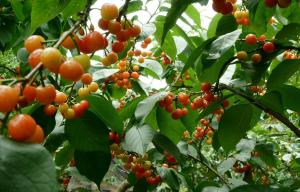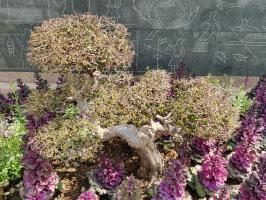Can You Water Plants with Tap Water?
Many people love to garden and take pride in the beautiful plants and flowers they cultivate. They often wonder about the best way to care for their plants, including what type of water to use for watering. One common question that arises is whether tap water is suitable for watering plants. In this article, we will explore this question and examine the benefits and drawbacks of using tap water to water your plants.
The Benefits of Using Tap Water
There are several benefits of using tap water to water your plants. Firstly, tap water is readily available and accessible to most people. This means that it is easy and convenient to use, and you do not need to take any special steps or make any extra effort to obtain it. Secondly, tap water is typically treated with chemicals such as chlorine and fluoride, which can help prevent the spread of diseases and pests in your garden. These chemicals can also help maintain the pH balance of your soil and water, which is essential for healthy plant growth.
The Drawbacks of Using Tap Water
While tap water has its benefits, it also has several drawbacks that you should be aware of. Firstly, tap water often contains high levels of minerals such as chlorine, fluoride, and calcium, which can build up in your soil and cause it to become alkaline. This can lead to nutrient deficiencies in your plants, as they will not be able to absorb the necessary nutrients from the soil. Secondly, tap water can contain contaminants such as heavy metals and pollutants, which can be harmful to your plants and the environment. Finally, tap water can also be hard water, which means it has a high concentration of dissolved minerals. Hard water can also cause mineral buildup in your soil and decrease plant growth.
Alternative Watering Methods
If you are concerned about the quality of your tap water, there are several alternative watering methods you can try. One option is to use rainwater. Rainwater is naturally soft and free from minerals and pollutants, making it an excellent choice for watering your plants. You can collect rainwater in a rain barrel or other container and use it to water your plants as needed. Another option is to use filtered water. You can use a filter or reverse osmosis system to remove minerals and contaminants from your tap water, making it safe and suitable for your plants.
Conclusion
In summary, tap water can be used to water your plants, but there are drawbacks and limitations to consider. While tap water is convenient and easy to use, it can contain high levels of minerals and contaminants that can harm your plants. If you are looking for alternative watering methods, rainwater and filtered water are both excellent choices that can provide your plants with the necessary moisture without any harmful side effects. Ultimately, the choice of watering method will depend on your personal preferences and the specific requirements of your plants.

 how many times do yo...
how many times do yo... how many planted tre...
how many planted tre... how many pine trees ...
how many pine trees ... how many pecan trees...
how many pecan trees... how many plants comp...
how many plants comp... how many plants can ...
how many plants can ... how many plants and ...
how many plants and ... how many pepper plan...
how many pepper plan...
































